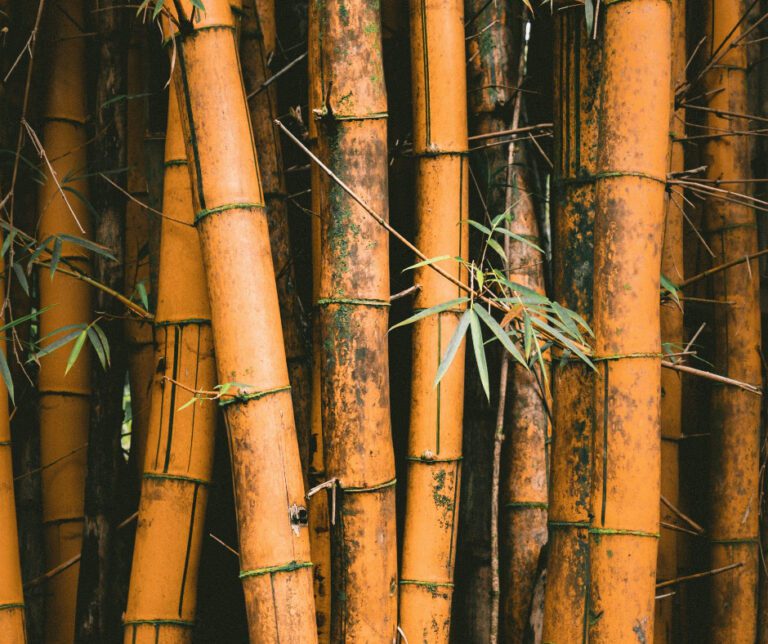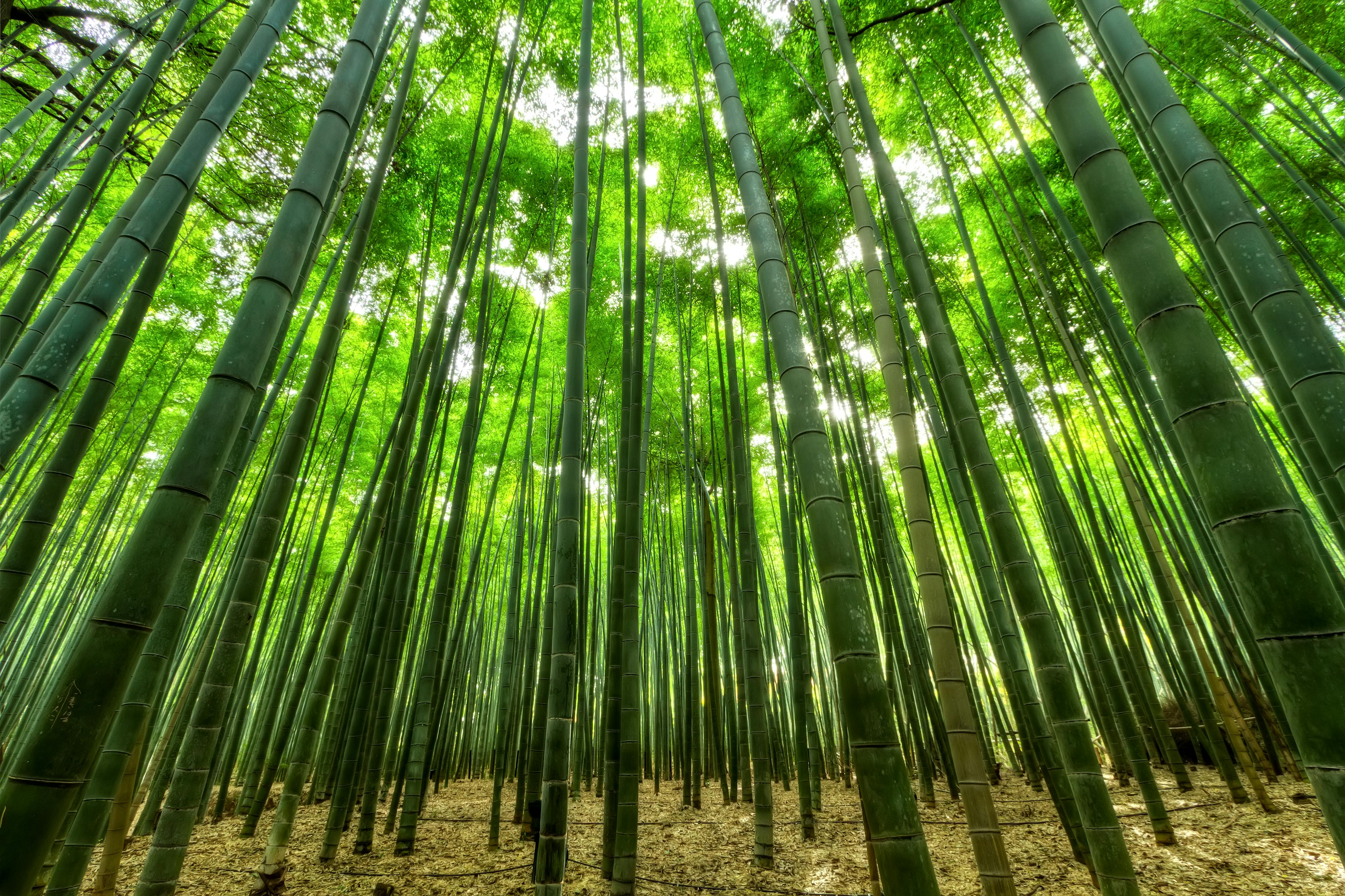Bamboo: The Green Superhero in the Fight Against Climate Change

Bamboo has emerged as a superhero in the fight against climate change. Its unique properties and eco-friendly nature make it a valuable asset in combating the environmental challenges we face today. As the world grapples with rising temperatures and heightened carbon dioxide levels, bamboo stands tall as a sustainable solution. From its ability to absorb carbon dioxide to its impact on soil erosion and water conservation, bamboo is proving to be an indispensable player in our battle against climate change.
Why Bamboo is An Eco-Friendly Plant
One of the key reasons bamboo is considered an eco-friendly plant is its remarkable growth rate. Unlike traditional trees, which take years to mature, bamboo can reach full height in a matter of months. This rapid growth ensures that bamboo can be harvested and used as a resource without depleting it. Furthermore, bamboo is a versatile plant that can thrive in diverse climates and soil conditions, reducing the need for excessive water and fertilizers. This makes bamboo cultivation environmentally sustainable and less resource-intensive compared to other crops.
Bamboo’s Ability to Absorb Carbon Dioxide
As the primary greenhouse gas responsible for climate change, carbon dioxide emissions are a pressing concern. Bamboo, however, has a unique ability to absorb carbon dioxide at an astonishing rate. Studies have shown that bamboo can absorb up to four times more carbon dioxide compared to other trees. This makes bamboo forests highly effective in reducing greenhouse gas emissions and mitigating the impact of climate change. By promoting the cultivation of bamboo, we can create vast carbon sinks that help combat global warming and preserve the delicate balance of our ecosystem.
Bamboo’s Impact on Soil Erosion and Water Conservation
Soil erosion is a significant problem that exacerbates the effects of climate change. Deforestation and unsustainable land use practices contribute to the loss of fertile soil. However, bamboo plays a crucial role in preventing soil erosion. Its extensive root system helps bind the soil together, reducing the risk of erosion caused by heavy rainfall or wind. Additionally, bamboo’s dense foliage acts as a natural barrier, preventing water runoff and allowing water to permeate the ground. This helps replenish groundwater resources and maintain water balance in the ecosystem.
Bamboo As a Sustainable Alternative to Traditional Building Materials
The construction industry is a major contributor to carbon emissions and environmental degradation. However, bamboo offers a sustainable alternative to traditional building materials such as steel and concrete. Bamboo’s strength and flexibility make it an excellent choice for construction purposes. It can be used to build sturdy structures, including houses, bridges, and even skyscrapers. Additionally, using bamboo in construction significantly reduces the carbon footprint as it requires minimal energy during processing and has a low embodied energy compared to conventional materials.
Bamboo As a Renewable Source of Energy
In our quest for renewable energy sources, bamboo has emerged as a viable option. Bamboo is an excellent source of biomass energy, which can be harnessed through various methods such as biofuels and biogas. The rapid growth and high cellulose content of bamboo make it an ideal feedstock for bioenergy production. By utilizing bamboo as a renewable source of energy, we can reduce our dependence on fossil fuels and mitigate the harmful effects of greenhouse gas emissions.
Climate Change Initiatives Incorporating Bamboo
Recognizing the immense potential of bamboo in combating climate change, several initiatives have incorporated bamboo into their strategies. One such initiative is the Bamboo for Climate Change Mitigation and Poverty Alleviation (BAMBOOMAP) project. This project aims to promote sustainable bamboo cultivation, create carbon sinks, and provide livelihood opportunities for communities vulnerable to climate change impacts. Additionally, various countries have integrated bamboo into their reforestation programs to restore degraded lands and enhance biodiversity.

Bamboo Farming and Its Economic Benefits
Apart from its environmental advantages, bamboo farming offers significant economic benefits. Bamboo cultivation provides a source of income for farmers, particularly in rural areas. The fast growth rate of bamboo allows for regular harvests, ensuring a steady stream of revenue. Moreover, the versatility of bamboo as a raw material opens up opportunities for the manufacturing industry, creating jobs and stimulating economic growth. By promoting bamboo farming, we can foster sustainable development while addressing the challenges posed by climate change.
Bamboo Products and Their Environmental Advantages
The use of bamboo extends beyond construction and energy production. Bamboo-based products offer a range of environmental advantages compared to their counterparts. Bamboo textiles, for instance, are highly sustainable as they require less water and chemicals during the manufacturing process. Bamboo paper is another eco-friendly alternative, as it can be produced without the need for harsh chemicals used in traditional paper production. Furthermore, bamboo products are biodegradable, reducing the burden on landfills and minimizing waste generation.
Bamboo’s Potential in the Fight Against Climate Change
Bamboo has emerged as a green superhero in the fight against climate change. Its unique properties, eco-friendly nature, and versatility make it a valuable asset in our battle against environmental challenges. From its ability to absorb carbon dioxide and prevent soil erosion to its renewable energy potential and economic benefits, bamboo offers a sustainable solution in addressing climate change. By harnessing the power of bamboo and promoting its cultivation, we can make significant strides in mitigating the impact of climate change and preserving the planet for future generations.
Few plants offer the strength and beauty that bamboo does. It is truly a plant of emmaculate design.
Learn More about the uses for bambooWe are dedicated to the promotion and use of bamboo throughout the world. Bamboo is a plant that offers limitless potential for the future. It offers us strength, sustainability, versatility, and a green alternative.
Bamboo Grove on Twitter
Bamboo Grove YouTube Channel
Moline, IL
info@bamboogrove.com